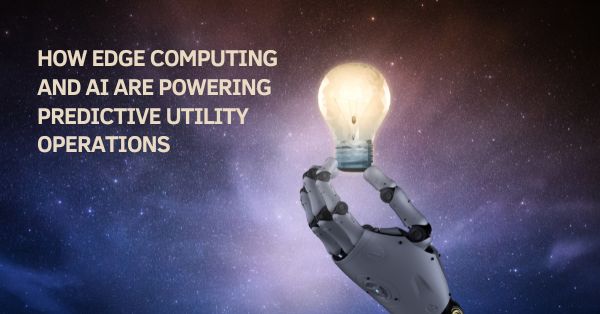OpenAI, a leading name in artificial intelligence, has partnered with Retro Biosciences, a longevity science startup, to develop GPT-4b micro, an AI model designed to re-engineer proteins. This groundbreaking collaboration aims to address one of humanity’s most ambitious goals: extending the human lifespan by 10 years.
This joint effort, first reported by the MIT Technology Review, combines OpenAI’s expertise in AI with Retro Biosciences’ focus on regenerative medicine. It represents a significant step forward in artificial intelligence and biotechnology.
Training GPT-4b Micro on Protein Sequences Across Species
The GPT-4b micromodel was trained on extensive datasets of protein sequences from multiple species. This unique approach allowed the model to learn how proteins interact and function at a molecular level. Unlike OpenAI’s flagship models, which are large general-purpose language models, GPT-4b micro is a specialized small language model tailored specifically for biological research.
The focus of this model is the Yamanaka factors, a set of four proteins that can convert adult human cells into pluripotent stem cells. These reprogrammed cells can develop into nearly any type of cell in the body, offering immense potential for creating replacement cells and even lab-grown human organs.
According to the MIT Technology Review, OpenAI and Retro Biosciences have refined the Yamanaka factors to increase their effectiveness by over 50 times, a development that could reshape regenerative medicine and longevity science.
What Sets GPT-4b Micro Apart from AlphaFold?
AI has already demonstrated its potential in biology through projects like Google DeepMind’s AlphaFold, which accurately predicts the shape of proteins. However, GPT-4b micro takes a different approach.
Rather than focusing on protein structure prediction, GPT-4b micro is designed to modify and engineer proteins for specific biological outcomes. This makes it a custom-built tool for applications in longevity science, such as reversing cellular aging or enhancing regenerative processes.
The collaboration between OpenAI and Retro Biosciences highlights the broader potential of AI in biotechnology. While AlphaFold revolutionized protein analysis, GPT-4b micro is breaking new ground by using AI to directly design solutions for regenerative medicine.
The Yamanaka Factors and Their Role in Longevity Science
The Yamanaka factors have long been studied for their ability to “reset” adult cells to a younger state. This process, often described as returning cells to their “factory settings,” is key to developing therapies that can combat aging and degenerative diseases.
By re-engineering these proteins, GPT-4b micro could enhance their efficiency and functionality, paving the way for:
- Stem Cell Production: Improved methods to produce stem cells for medical therapies.
- Organ Regeneration: The potential to grow human organs in laboratories, reducing reliance on transplants.
- Anti-Aging Treatments: Slowing or reversing cellular aging to extend health and lifespan.
This breakthrough aligns with Retro Biosciences’ mission of adding 10 healthy years to human life through innovative applications of biotechnology.
GPT-4b Micro and the Road to Artificial General Intelligence
Sam Altman, CEO of OpenAI and a key financial backer of Retro Biosciences, has emphasized AI’s potential to accelerate scientific discovery. In recent statements, Altman suggested that developments like GPT-4b micro bring OpenAI closer to achieving Artificial General Intelligence (AGI)—AI systems capable of performing any intellectual task humans can.
The success of GPT-4b micro is an example of how AI can be leveraged to address real-world challenges, from medical research to regenerative medicine. Altman has argued that such superintelligent tools could transform the pace of innovation across industries, including healthcare and biotechnology.
OpenAI and Retro Biosciences: Sharing Research for Longevity Breakthroughs
In a move to foster collaboration and accelerate progress, OpenAI and Retro Biosciences have announced plans to publish research on GPT-4b micro and its outputs. This transparency will enable other researchers to evaluate and build upon the model’s findings, potentially opening new avenues for innovation in longevity science.
Ethical and Economic Challenges in Longevity Science
While the partnership between OpenAI and Retro Biosciences is promising, it comes with challenges that need to be addressed:
- Ethical Questions: Who will have access to longevity technologies, and how will they affect societal dynamics?
- Scientific Hurdles: Translating lab results into practical, approved therapies will require rigorous testing.
- Economic Barriers: Developing and scaling these technologies may limit their availability to only a small portion of the population.
Despite these obstacles, the collaboration underscores AI’s expanding role in tackling some of humanity’s biggest challenges.
AI’s Role in Shaping the Future of Biotechnology and Longevity
The success of GPT-4b micro highlights the transformative potential of AI in biotechnology. By designing specialized models for biological research, AI is enabling scientists to push the boundaries of what’s possible in fields like protein engineering, regenerative medicine, and anti-aging treatments.
With OpenAI and Retro Biosciences leading the charge, this collaboration could pave the way for groundbreaking advancements that redefine human health and longevity. As the lines between technology and biology continue to blur, the future of medicine may look radically different, offering hope for healthier, longer lives powered by artificial intelligence.






















